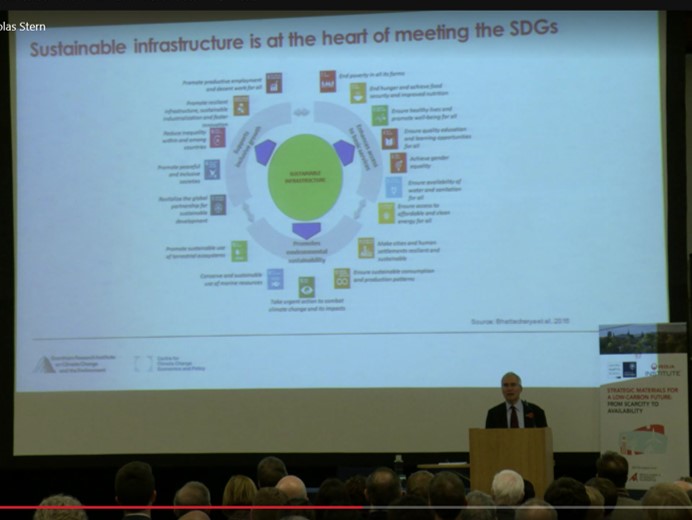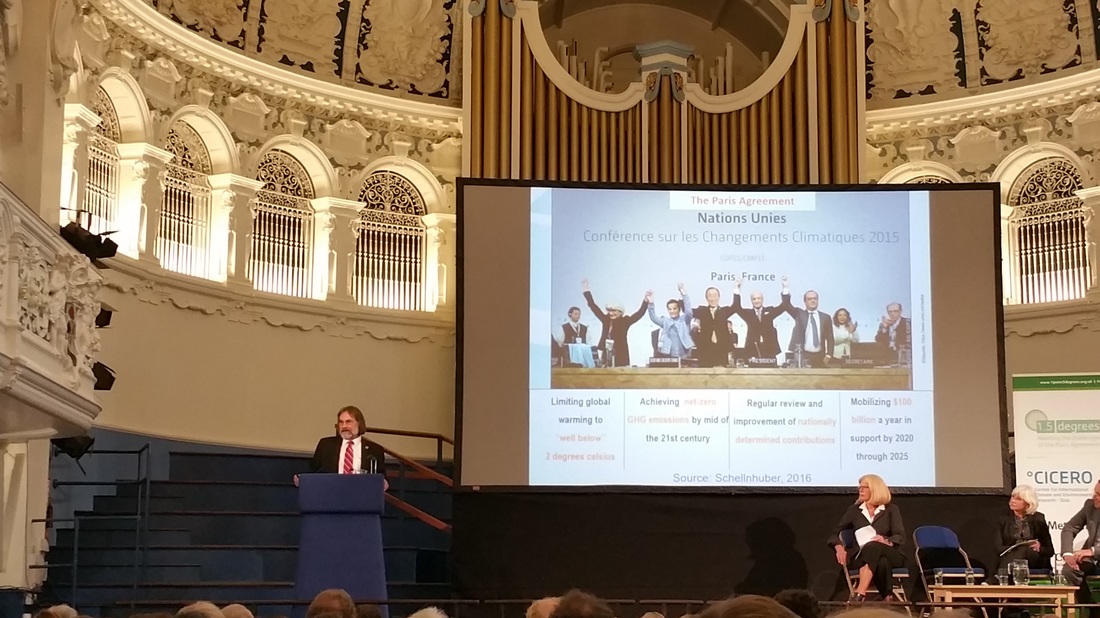|
Global sustainability will only happen if the mainstream of the population live lives that are sustainable. That might seem like a trivial statement. But it has some fundamental questions underneath it. How and when will the mainstream accelerate the necessary shift from an unsustainable trajectory to a sustainable one?
The transition has started, but is not happening fast enough, as highlighted by Lord Stern in many talks and publications in the last few years, on the issue of Climate Change alone. And yet it goes much further than Climate Change. It is an issue of water, food, land use, consumerism. All these aspects require major shifts globally to achieve a just and sustainable future for all global citizens. The mainstream is the place where this shift will really happen. And if the mainstream doesn't "move" in the sense of changing its ways of living, travelling, earning, using energy, consuming, recycling, then the mainstream might have to "move" in a different sense - to physically move to find different places to sustain itself as increasingly dramatic deterioration happens in the places they currently live - resulting in mass migration on an unprecedented scale. I wasn't able to attend this talk in person in Oxford earlier this month, but I caught the tail-end via the livestream video, and watched the whole of it later (link here). Lord Stern is optimistic, and points out that this is a topic where there is massive potential for cross-party support. He paints a picture of short-term investment in sustainable infrastructure to provide economic growth while moving to a net zero carbon economy in the next 40 - 50 years, supported by the Sustainable Development Goals. Urgency and scale of the transition were key emphases in his talk. We're moving much too slowly on this, and we need to speed up.
Last night I went to the public launch of 1.5 Degrees: Meeting the challenges of the Paris Agreement - http://www.1point5degrees.org.uk/
Excellent set of talks, discussions and Q&A on meeting the challenges of keeping global warming to below 1.5 degrees above pre-industrial levels. Will be interested to see the results of the rest of the conference, especially how the matter of global justice is treated, on top of the technical and geopolitical aspects. I've heard quite a few reports in the media that one of the main reasons many people voted for Brexit was to protect a sense of local community. The claim is that the sense of community is being eroded or swamped by the rate of immigration.
This very much depends on your point of view about what "community" means. Is it a fixed or nearly-fixed set of people in a specific geographic area who already know each other well as neighbours, or is it rather a concept and an approach to our neighbours, whoever they are? The former view lends itself to increasing isolationism and protectionism. The latter view lends itself to being good neighbours to everyone, whether at local, regional, national or global levels - many overlapping and interlocking communities, and ultimately a community of communities, such as that represented by the European Union. The UK has decided to leave the European Union.
I hope that, in the ways this decision is carried out, those who do it draw on British values and identities that are admired by many around the world - tolerance, compassion, innovation, open-mindedness, free expression, love of diversity and opportunity, humility, respect for others, a spirit of both adventure and co-operation in seeking to solve world problems. This ushers in a period of renegotiation of the relationship between the UK and the rest of Europe. I hope that relationship, even if rocky in the short-term, emerges better - to the mutual benefit of all countries and peoples, in the context of our shared responsibilities for the Global Commons and each other. Through the ages, people have moved between countries. Either they are running away from something, or attracted towards something else. Whatever the driver, they seek a better life for themselves, and often for their children. Go back a few tens of thousands of years and the islands of the UK had no human inhabitants at all. Reflecting on those timescales, , all of us currently living permanently in the UK are migrants or are descended from migrants.
So it saddens me when I hear some people talk in ways that indicate that their underlying philosophy is what could be described as “fortress UK” – draw up the drawbridge and keep them out. A modified version of this is “keep them out, unless they have skills we need and can’t get locally”. This is still essentially the same thing, or perhaps even worse. It’s saying those people are prepared to accept people in as wage slaves but not if they need help and might be a net cost to our welfare state. What an appalling underlying set of assumptions lurk beneath these opinions. The assumption that we’re not interested in letting people into our country unless they can show a net positive financial contribution. To reduce them to mere economic statistics towards a flawed measure of success – GDP. If we are all migrants, or descended from migrants, what legacy do we think our migrant ancestors would be proudest of – a stance that creates a fortress and protects a population’s comfort and greed or a stance that respects and supports human spirit and endeavour which resides in people who uproot themselves and seek a better life. Maybe people who build fortresses find it difficult to comprehend and empathise until their walls (or their bodies and minds) crumble and decay through ossification and they have to venture outside them for support, warmth, or even just for essential services they can’t provide for themselves (eg health services). |
AuthorThe Planetary CFO - working towards a sustainable World Balance Sheet. Categories
All
Archives
July 2024
|


